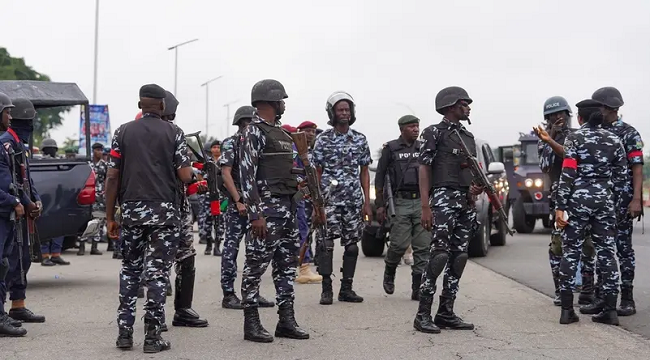Israeli Defense Forces (IDF) Chief of Staff Lt. Gen. Herzi Halevi has endorsed the government’s decision to accept the recent Gaza ceasefire and hostage release deal. Halevi, set to step down on March 6 after the Hamas attack in October, expressed that the army is committed to ensuring the price of the agreement remains minimal. In a leaked statement from a closed-door Knesset Foreign Affairs and Defense Committee meeting, Halevi also assured that the IDF retains the capability to resume combat operations if the deal breaks down.
Halevi justified his decision to remain in command after the Hamas onset by stating that leaving immediately would have hindered the military response. “The military had to be led,” he maintained.
The IDF is currently in the process of conducting a thorough investigation into the failures that preceded the Hamas onslaught, where thousands of Hamas-led terrorists breached southern Israel, claiming roughly 1,200 lives and seizing 251 hostages. General Halevi assured committee members that the army would conduct this probe meticulously without neglecting its responsibilities on multiple fronts, even if it extends the timeline by a couple of weeks.
There is an ongoing tension between Halevi and Defense Minister Israel Katz regarding the pace and thoroughness of the investigation. Katz has accused Halevi of postponing the necessary probes, and Halevi has been ordered to cooperate fully with State Comptroller Matanyahu Englman’s review. Halevi has emphasized that the military will provide full access to information to any authority, including the state comptroller, Haaretz reported.
IDF Chief of Staff Lt. Gen. Herzi Halevi meets with officers in southern Lebanon, December 29, 2024. (IDF)
Halevi appreciated the committee’s critique, yet noted concerns about the morale of IDF officers who felt disrespected by the questioning. During the cabinet meetings, significant disagreements were logged, particularly with senior figures like Expand Minister Yariv Levin and National Security Minister Yoav Gallant, who were vocal critics of Halevi’s leadership.
Halevi highlighted the January 18 cabinet session that endorsed the ceasefire agreement as a valuable civic lesson, reaffirming the unanimous goal to secure the release of the hostages despite differing strategies.
IDF chief Herzi Halevi (L to R), Prime Minister Benjamin Netanyahu, Defense Minister Israel Katz, and IAF chief of staff Omer Tischler at the IAF’s underground command center in Tel Aviv on December 26, 2024. (IDF)
The IDF chief also spoke on the extended deadline to withdraw from Lebanon following the November 27 ceasefire with Hezbollah. Halevi emphasized the need for the absence of a border-adjacent threat, asserting that it must be enforced with power.
Halevi drew a connection between Israel’s operations against Hezbollah and the subsequent fall of Assad in Syria, highlighting how these actions dismantled the broader Shiite Axis in the region. He suggested that Israel would closely monitor events in Syria and would not hesitate to act if necessary, hinting at potential operations within the region.
Regarding the West Bank, Halevi claimed that the IDF is undertaking a robust anti-terrorism campaign following the recent killing of an IDF reservist. He pointed out that data from the past years indicates a decline in both organized and unorganized terrorist activities in the region.
Troops of the Kfir Brigade operate in the northern Gaza Strip, in a handout photo issued by the IDF on January 7, 2025. (Israel Defense Forces)
Halevi advocated for increasing IDF manpower by ten thousand soldiers, particularly combat troops, and highlighted the imperative to draft ultra-Orthodox Jews. He acknowledged that without some form of sanctions against draft dodgers, it would be challenging to reach the desired enlistment figures.
Halevi further revealed that 4,800 Haredi soldiers can be recruited this year, with numbers increasing by 20% next year, and full absorption by 2027. However, this projection contrasts with the demands of Haredi leaders who seek much lower enlistment quotas. Haredi community leaders have also threatened to destabilize the government if a compromise on draft exemptions is not reached.
Ultra-Orthodox protesters sit on a road, blocking traffic, in front of a mounted police officer, during a demonstration against the Haredi draft, in Jerusalem, January 28, 2025. (Chaim Goldberg/Flash90)
The IDF’s chief, Herzi Halevi, reaffirms the decision to adhere to the Gaza ceasefire, while also highlighting the army’s commitment to rigorous investigation and readiness for future engagements. His comments underscore the ongoing tensions within the defense establishment and the pressing issues of military manpower and Haredi draft exemptions.
Get The Times of Israel’s Daily Edition
by email and never miss our top stories
By signing up, you agree to the terms
We value your insights. Share your thoughts on the IDF’s stance and ongoing military operations in the comments below. Join the conversation and stay updated by subscribing to our newsletter or following us on social media.
The post IDF Chief of Staff Hails Gaza Ceasefire Deal Sees Potential for Resuming Combat appeared first on Archynetys.













